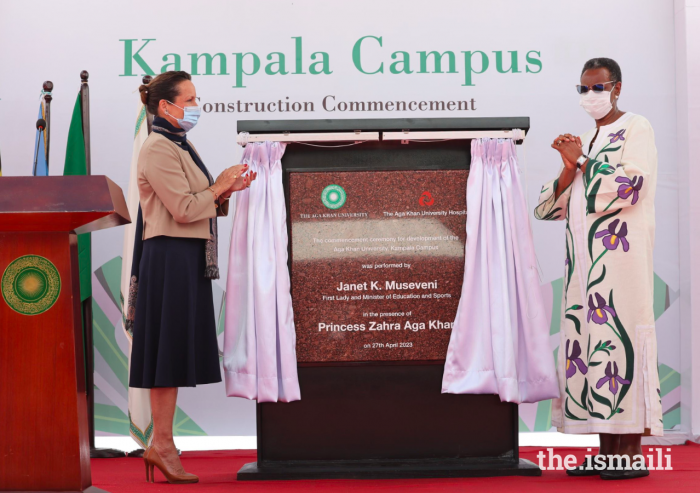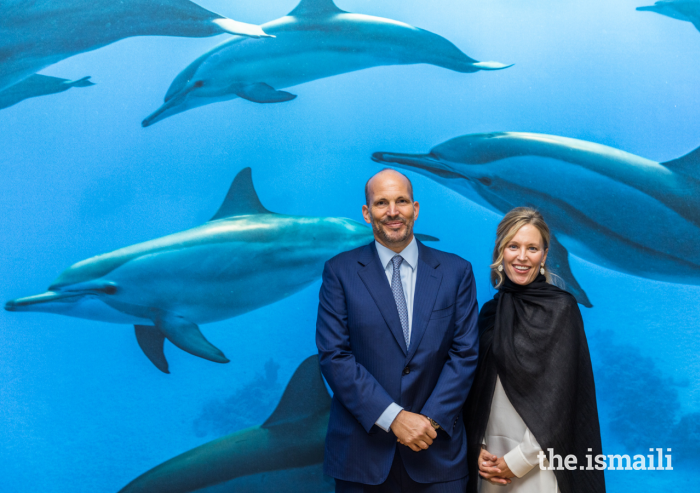The occasion started with the recitation of verses from the Holy Quran and renditions of Naats.
Vice President Naznin Jaffer welcomed the guests and reflected on the teachings of the Prophet (peace be upon him and his family) and his emphasis on seeking knowledge. She spoke on how the Qur’an acknowledges that people upon whom wisdom has been bestowed are the recipients of abundant good; they are the exalted ones — hence Islam’s consistent encouragement to Muslim men and women to seek knowledge wherever it is to be found.
The event was attended by a number of external guests including Prince Kassim Nakibinge the titular head of the Muslim community in the country, who applauded the Ismaili community in Uganda for being peace-loving people and praised Mawlana Hazar Imam for his outstanding contributions to education and other development activities in Uganda. He also added that, “As already enumerated, Islam is peace and we must have peace with one another and spread it. But first we must embrace it ourselves.”
Several representatives from different faith backgrounds and countries were also present to mark the celebration and to contemplate on the Prophet’s life and his attributes of living a life permeated with spirituality yet at the same time actively engage in service to humankind and quest for knowledge.
The keynote lecture was delivered by Mr Suhail Muhammad Ali, an Ismaili Muslim scholar from Pakistan, who emphasised the role of knowledge in Islam and stressed that useful knowledge is necessary for the benefit of self-development and for the progress of humanity and cited examples of 9th- and 10th-century Muslim societies, which excelled in different fields of knowledge and established vibrant centres of learning such as Dar-ul-Ilm, Al-Azhar University, and Al-Qarawiyyan. The scholar observed that Islam has put significant emphasis on both seeking and sharing knowledge and in Islam seeking knowledge is an obligation on both man and woman.
Later in the month, on 18 November, Milad un Nabi was also marked by the community when young Ismaili volunteers, with the generosity of a donor, helped serve hot meals to over 1,200 children at several sites including KOFS Kawanda Orphanage near Kawempe, at Kibuli Mosque and the surrounding settlements, at Bukesa (near the Aga Khan School ground), and Kiseka. This was in line with the notion of social justice which is apparent in the Qur'an and draws a parallel between piety and acts of charity and service.
President Minaz Jamal said, "Volunteerism and service to society are an integral part of the Ismaili Muslim tradition and opportunities for giving resources and time are an opportunity to significantly improve the communities within which we live and inculcate within the young ones the importance of upholding the Ismaili tradition of volunteerism. Milad un Nabi is an ideal occasion for the volunteers to participate in such acts of generosity and service. In the past, our young volunteers have also helped clean streets, helped with serving meals to the less fortunate, and have also painted zebra crossings.”













